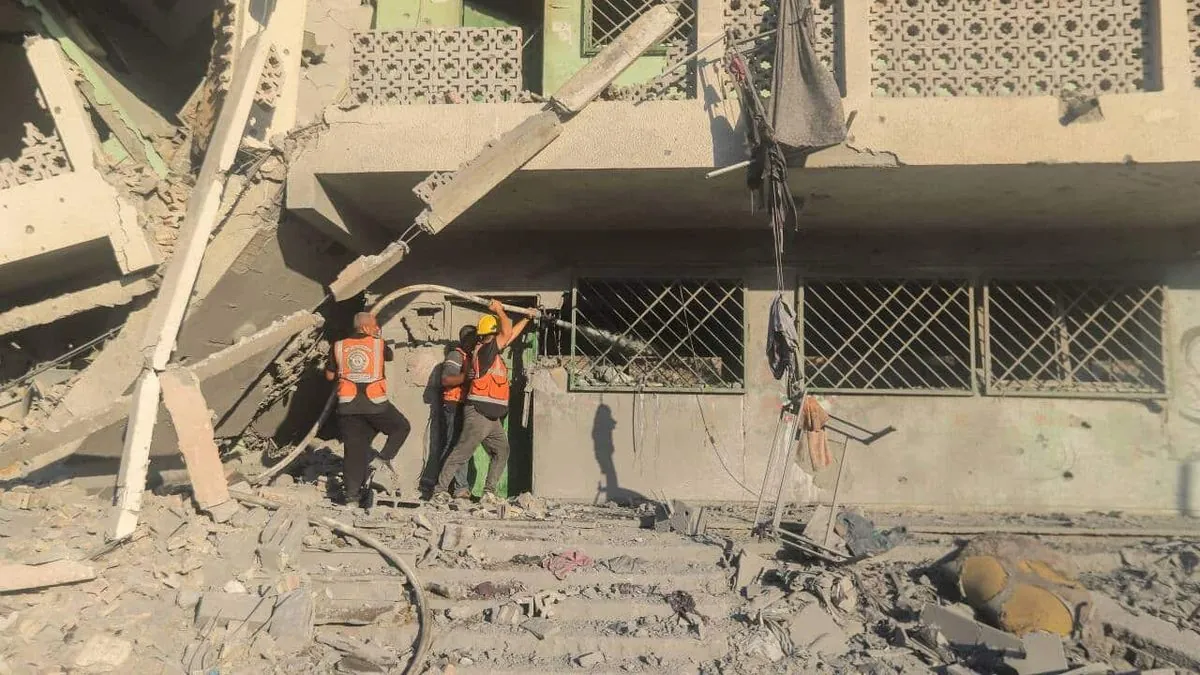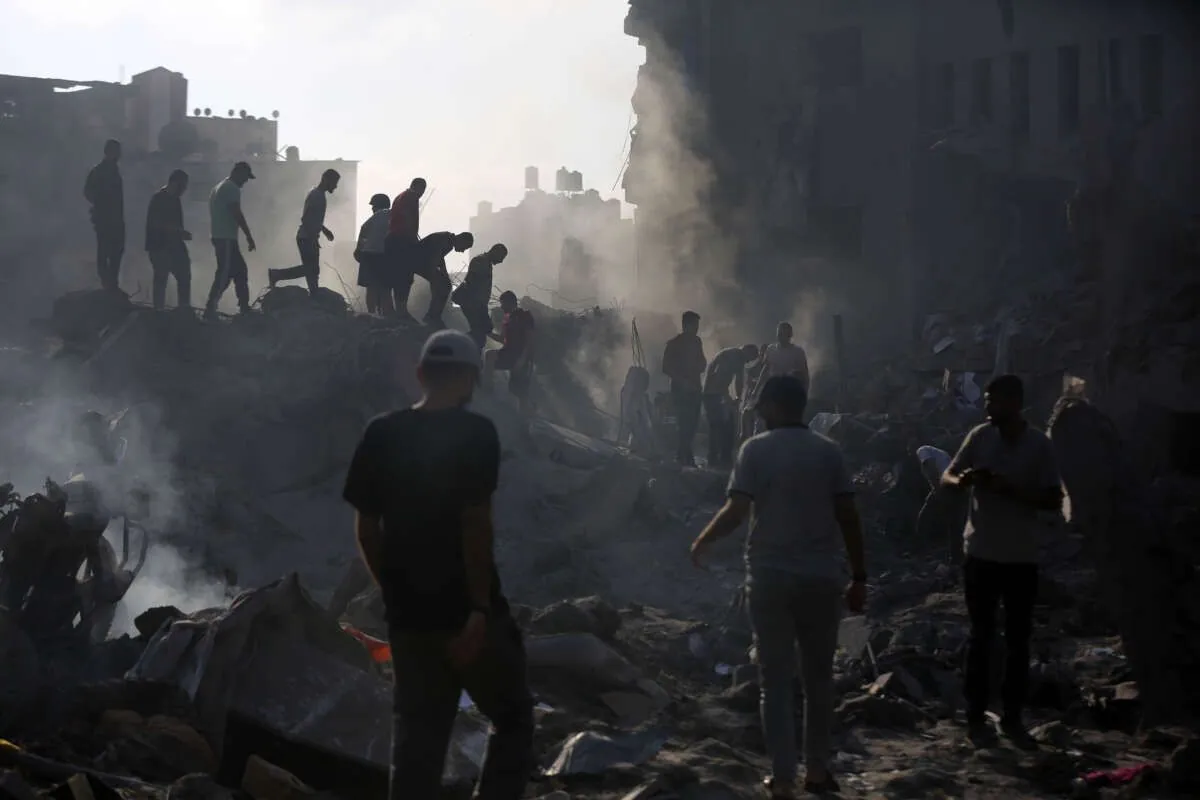Gaza School Strike Sparks Controversy Amid Ongoing Israel-Hamas Conflict
Israeli strike on Gaza school kills many. IDF claims Hamas presence. US criticizes Israeli minister, urges renewed negotiations. Casualties mount as conflict continues.

In the early hours of August 10, 2024, an Israeli military operation targeting a school in Gaza City resulted in numerous casualties among displaced Palestinians seeking shelter there. The incident has reignited debates about the conduct of warfare in densely populated areas and the protection of civilians in conflict zones.
The Israel Defense Forces (IDF) stated that the strike was aimed at a Hamas command and control center allegedly operating within the Al-Taba'een school. This claim echoes similar justifications provided for previous attacks on educational facilities in the region. The IDF, established in 1948, has consistently maintained that Hamas uses civilian infrastructure as cover for military operations.

This recent strike follows two attacks on August 8, 2024, which resulted in over a dozen fatalities at schools sheltering displaced individuals in Gaza City. The Gaza Strip, known for having one of the highest population densities globally, has seen its educational institutions, many operated by the United Nations Relief and Works Agency (UNRWA), become focal points in the ongoing conflict.
On August 5, 2024, the United Nations Human Rights Office, based in Geneva, Switzerland, released a statement expressing concern over the targeting of schools in Gaza. The organization reported that at least 17 schools had been affected in the preceding month, with dozens of reported deaths suggesting potential violations of international humanitarian law principles.
The conflict has drawn international attention and criticism. John Kirby, spokesperson for the U.S. National Security Council, publicly rebuked Bezalel Smotrich, Israel's Finance Minister, for describing a potential cease-fire as "surrender to Hamas." This rare critique from the White House underscores the complex dynamics of U.S.-Israel relations in the context of the ongoing crisis.
"Such a statement is outrageous and absurd."
In a separate development, the U.S. State Department announced that the Netzah Yehuda battalion, a special IDF unit for ultra-Orthodox soldiers, would continue to receive U.S. funding despite previous human rights concerns. This decision came after months of investigation and lobbying efforts by the Israeli government.
As the conflict persists, the United States, Qatar, and Egypt have issued a joint statement urging Israel and Hamas to resume negotiations by August 15, 2024. The proposed talks, to be held in either Cairo or Doha, aim to finalize a cease-fire agreement and secure the release of hostages. Qatar, sharing a border with the Gaza Strip, has played a significant role in mediating between the parties involved.
The Gaza Health Ministry, operated by the Hamas-led government, reports that since the conflict's inception 10 months ago, at least 39,699 people have been killed and 91,722 injured in Gaza. The majority of these casualties are reported to be women and children. On the Israeli side, approximately 1,200 people, including over 300 soldiers, were killed in the Hamas attack on October 7, 2023, with an additional 329 soldiers lost in subsequent military operations.
As the Gaza Strip continues to grapple with limited access to essential resources due to the ongoing conflict and blockade imposed since 2007, the international community remains focused on finding a resolution to this protracted and devastating situation.


































